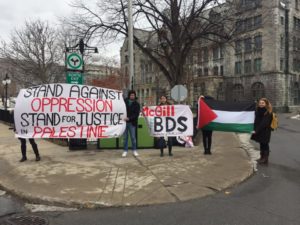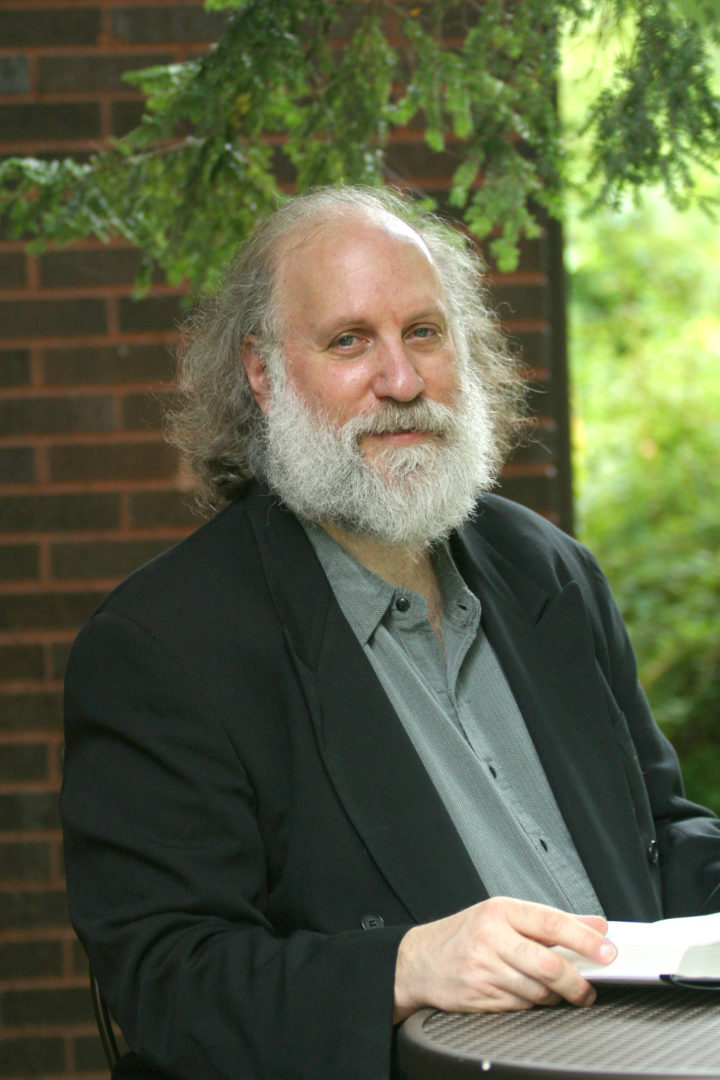Opponents of an academic boycott of Israel scored back-to-back victories at a conference of the Modern Language Association (MLA) earlier this month, defeating a pro-boycott resolution while gaining sufficient votes to pass a resolution that calls on the organization to specifically refrain from endorsing a boycott.
The second of the resolutions at the Jan. 5-8 event, which passed by a 101-93 margin, stated that the Palestinian campaign for an academic and cultural boycott of Israel “contradicts the MLA’s purpose to promote teaching and research” and would curtail debates with Israeli academics, “thereby blocking possible dialogue and scholarly exchange.”
The first, pro-boycott resolution, which accused Israeli universities of perpetuating violations of international law while denying academic freedom and educational rights to Palestinians, was defeated by a vote of 113 to 79.
A third resolution, which refers to attacks on Palestinian scholars and students by Palestinian political organizations, was shelved after the first two successful votes, according to Prof. Cary Nelson, an opponent of the academic boycott of Israel.
“We got everything we asked for,” said Nelson, who teaches modern poetry and literary theory at the University of Illinois at Urbana-Champaign. “We weren’t so confident going in.”
READ: BDS MOTION FAILS AT MCGILL AFTER ONLINE VOTE
According to the U.S. Campaign for the Academic and Cultural Boycott of Israel, about a dozen academic organizations have endorsed the boycott, divestment and sanctions (BDS) movement, including the African Literature Association, the American Studies Association, the Association for Humanist Sociology, National Association of Chicana and Chicano Studies Annual Conference, and the Native American and Indigenous Studies Association.
The MLA was founded in 1883 to strengthen the study and teaching of languages and literatures.
Nelson, author of The Case Against Academic Boycotts of Israel, said he has been fighting boycott-related resolutions at the MLA for 10 years, and he expects similar motions attacking Israel will continue at the next delegate assembly in 2018.
Boycott advocacy at the MLA has been trending up among younger faculty members in the last three years, Nelson said, but opponents also have been recruiting support from younger academics. Most MLA members are agnostic about the issue and would rather the organization stick to matters that concern them, he added.
‘We got everything we asked for… We weren’t so confident going in’
Nelson said opponents of the boycott resolution worked hard on the floor at the convention in Philadelphia to convince delegates to oppose a boycott. “We tried to convince members it’s none of the MLA’s business. It doesn’t need a foreign policy,” he said.
Opponents circulated a 10,000-word report on the issue, outlining the case against boycott and noting factual misrepresentations in the case being presented by its proponents.
Rebecca Comay, a professor of philosophy and comparative literature at the University of Toronto, was one of two co-sponsors of the pro-boycott resolution at the MLA conference.
“After five decades of a brutal military occupation, with the situation only deteriorating, it is time for the international community to act,” she said, explaining why she pushed the boycott resolution. “Given that there is no prospect of significant change happening from within (and as the Israeli leadership moves ever rightward), BDS is the most effective means – at this point the only means – of intervening on behalf of Palestinian human rights.
“Boycott is a non-violent, legal tactic that has historically proved effective in seemingly intractable situations. South Africa is a pertinent example,” she told The CJN via email. Comay said Palestinians have been “dispossessed, disenfranchised, and stripped of the fundamental human rights that we take for granted. These rights include a basic right to education and academic freedom.”

Asked why Israel should be singled out, Comay responded, “Israel is susceptible to boycott in a way that other countries (Saudi Arabia, Syria, Russia, etc) simply are not. As the so-called ‘only democracy in the Middle East’ Israel is actually susceptible to global public opinion, as the panicked reaction to the BDS movement clearly demonstrates. Israel has in any case already been ‘singled out’: it receives an unprecedented amount of U.S. military and economic aid (to the tune of $38 billion over the next 10 years – [President] Obama’s parting gift to Israel – that’s more than to all the countries of sub-Saharan Africa, Latin America and the Caribbean combined.”
Nelson said the BDS movement is growing within the humanities and social sciences, but less so in the hard sciences. However, much of the propaganda it advances is inaccurate, he said noting that Israel has doubled the number of Palestinian and Arab students in Israeli universities in just the last 10 years. The student body at some schools, like the Technion and the University of Haifa, where he’s an affiliated professor, is more than 25 per cent Arab, he said.
Yael Halevi-Wise, an associate professor in the English department at McGill University, said a small but influential group of leftist academics – “the radical caucus” – have been pushing the boycott proposal for several years.
“If you look at the BDS strategy, it’s a form of bullying. Omar Barghouti takes credit for the BDS and he says he would like to help Israel euthanize itself,” she said.
Halevi-Wise said the boycott effort “is an attempt to isolate and demonize our fellow colleagues in Israel.” Most, she said, are pro-peace and support a two-state solution, and some of the professors who would be affected are Arabs, she said.
“We had to work very hard to get through, because Israel is being maligned so frequently,” she added.
The resolution urging the MLA to refrain from boycotts now goes to the group’s executive council, which will determine if there are legal or constitutional issues posed by its language. From there it will be forwarded to the organization’s membership for ratification.







